Jesus, Priceless Treasure (BWV 227.1 & 11)
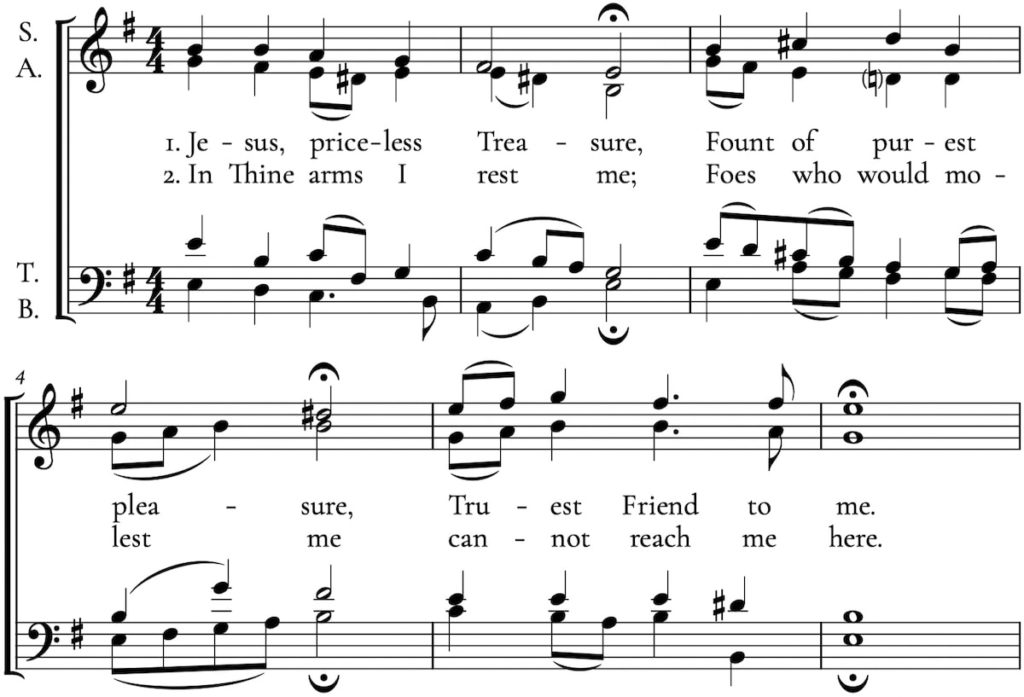
“Jesus, Priceless Treasure” (Jesu, meine Freude), text by Johann Franck (1653). Tune by Johann Crüger (1653). Chorale setting by Johann Sebastian Bach (BWV 227.1 & 11). Homophonic, SATB.
Rejoice, Jerusalem, and Sing!

“Rejoice, Jerusalem, and Sing!” text by Andrew Richard (2022). Tune (O freu dich sehr, Jerusalem) and setting by Nathanael Hahn (2022). Homophonic, SATB.
My Soul, Now Bless Thy Maker (BWV 29.8)
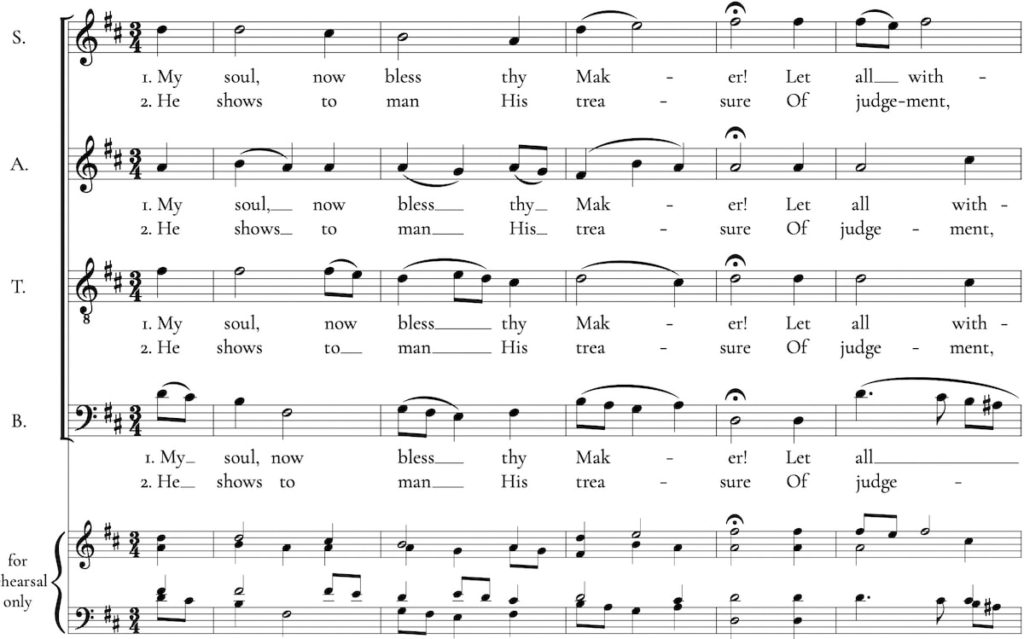
“My Soul, Now Bless Thy Maker” (Nun lob, mein Seel, den Herren), text by Johann Gramann (1540). Tune by Hans Kugelmann (1540). Chorale setting by Johann Sebastian Bach (BWV 29.8). Homophonic, SATB.
Christ Jesus Lay in Death’s Strong Bands (Crüger)

“Christ Jesus Lay in Death’s Strong Bands” (Christ lag in Todesbanden), text and tune by Martin Luther (1524). Setting by Johann Crüger (1649). Homophonic, SATB.
O Man, Thy Grievous Sin Bemoan (BWV 402)
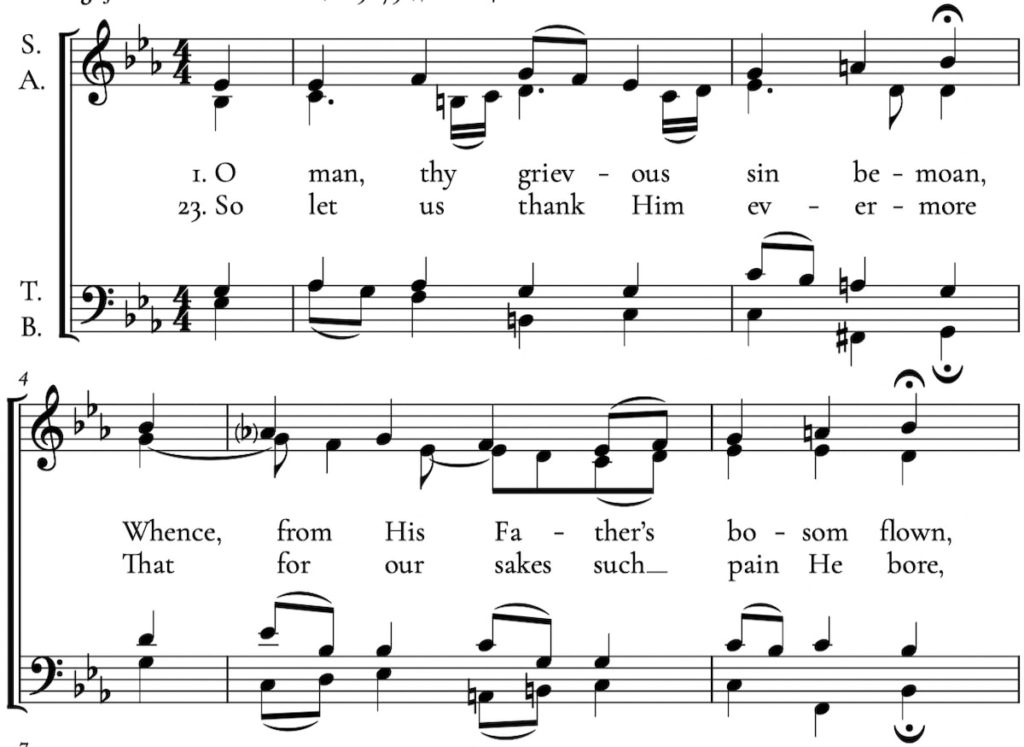
“O Man, Thy Grievous Sin Bemoan” (O Mensch, bewein dein Sünde gross), text by Sebald Heyden (c. 1530). Tune (Es sind doch selig alle, die im rechten Glauben wandeln) by Matthias Greitter (1525). Chorale setting by Johann Sebastian Bach (BWV 402). Homophonic, SATB.
Lord Christ, the Sole-Begotten
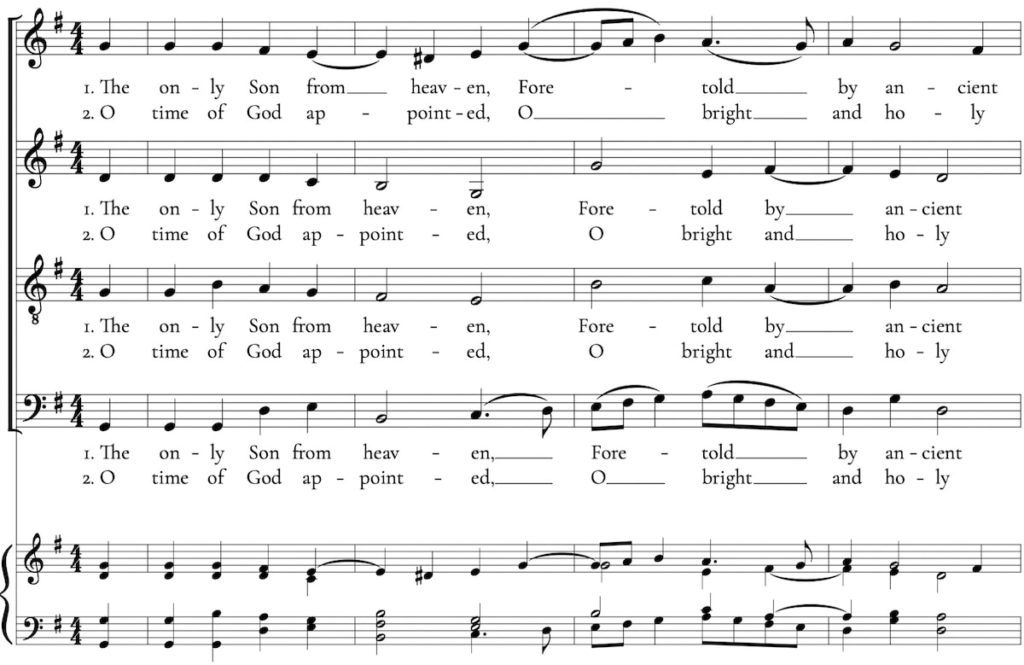
“Lord Christ, the Sole-Begotten” (a.k.a. The Only Son from Heaven; Herr Christ, der einig Gottes Sohn), text by Elisabeth Cruciger (1524). Setting by Johann Walter (1524). Homophonic, SATB.
If Thou But Suffer God to Guide Thee (BWV 197.10)
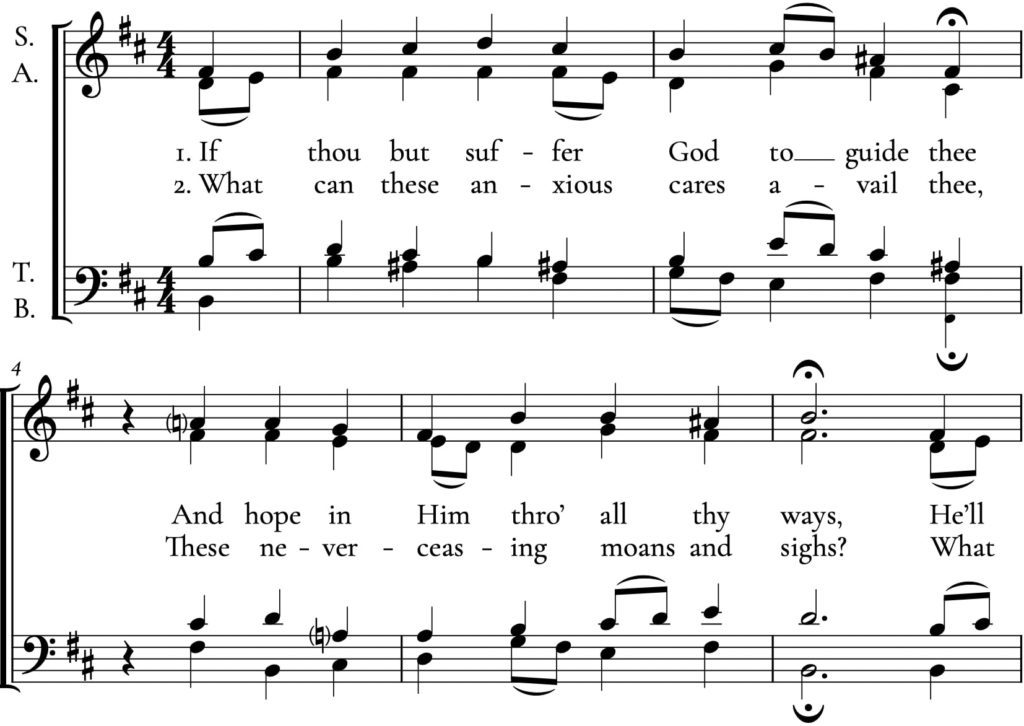
“If Thou But Suffer God to Guide Thee” (Wer nur der lieben Gott lässt walten), text and tune by Georg Neumark (1640). Chorale setting by Johann Sebastian Bach (BWV 197.10). Homophonic, SATB.
Jesus Lives! The Victory’s Won (BWV 145a)
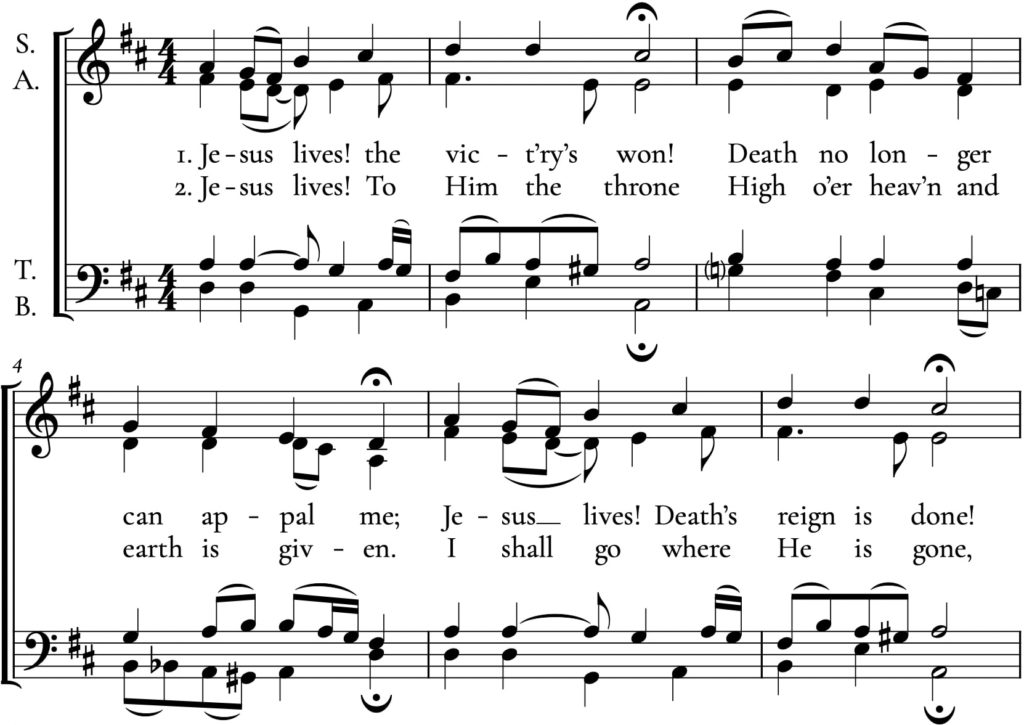
“Jesus Lives! The Victory’s Won” (Jesus lebt, mit ihm auch ich), text by Christian F. Gellert (1757). Tune (Jesus, meine Zuversicht) by Johann Crüger (1656). Chorale setting by Johann Sebastian Bach (BWV 145a), originally for text Auf, mein Herz, des Herren Tag. Homophonic, SATB.
Upon the Cross Extended (BWV 244.37)
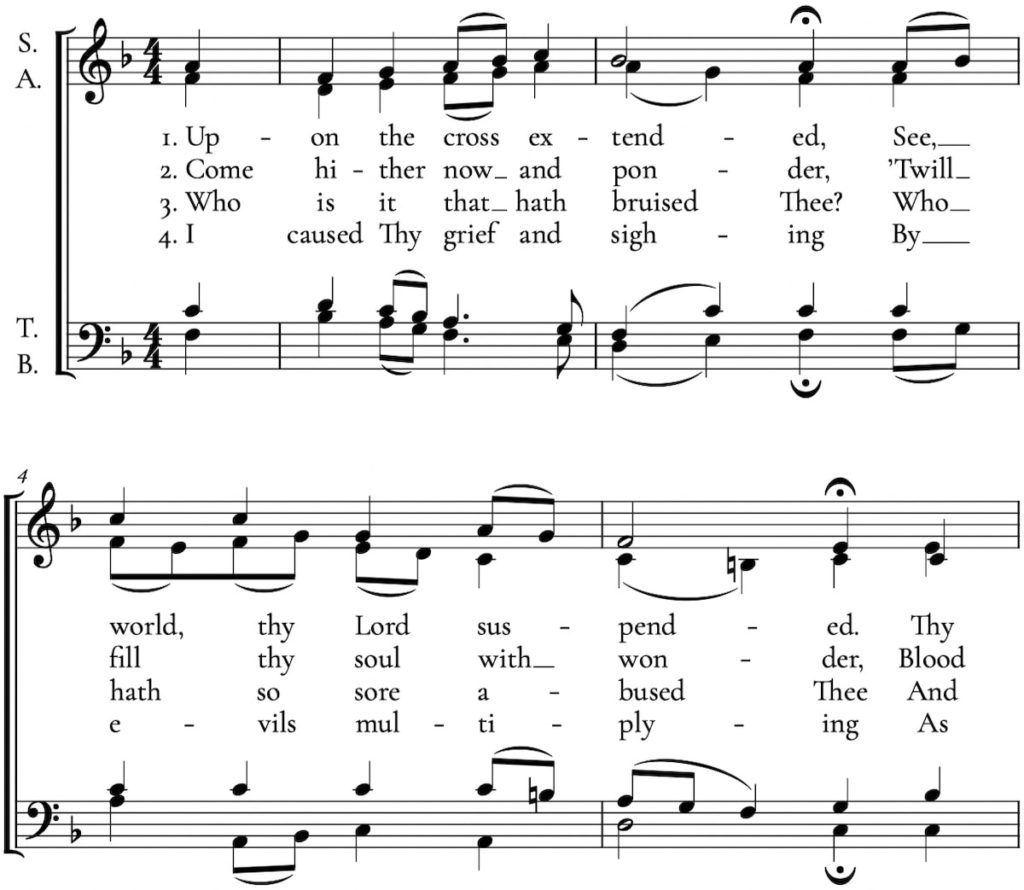
“Upon the Cross Extended” (O Welt, sich hier dein Leben), text by Paul Gerhardt (1647). Tune O Welt, ich muß dich lassen (1555). Chorale setting by Johann Sebastian Bach (BWV 244.37). Homophonic, SATB.
The Day Is Surely Drawing Near
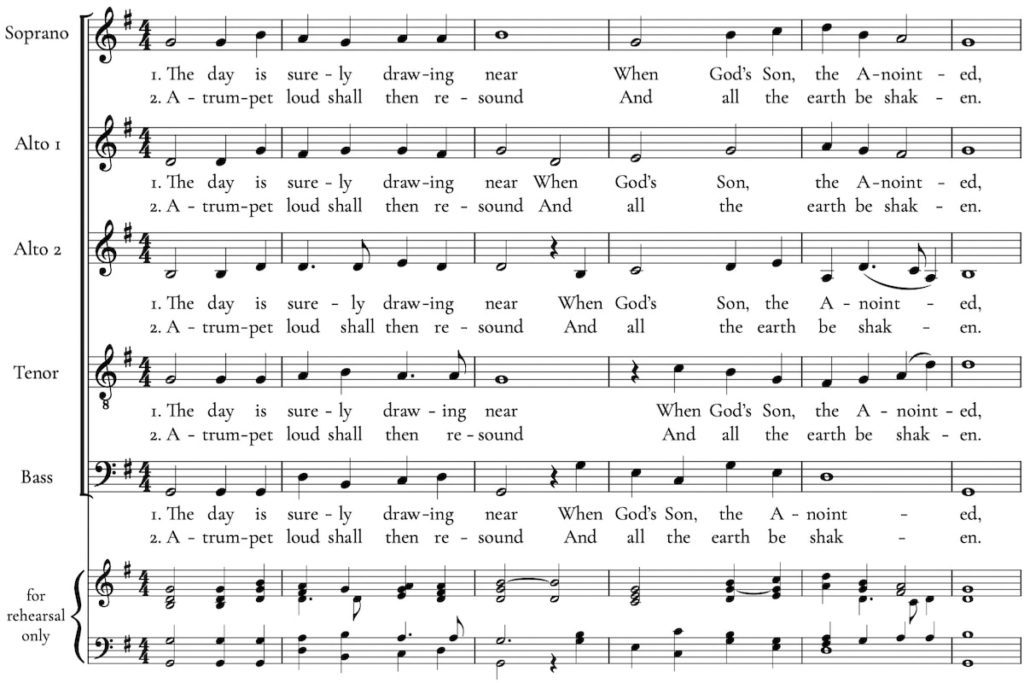
“The Day Is Surely Drawing Near” (Es ist gewisslich an der Zeit), text by Bartholomäus Ringwaldt (1586). Setting by Johannes Eccard (1597). Polyphonic, SAATB.

